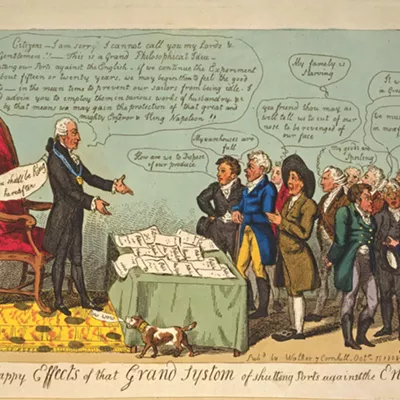In the 1800s, American author and humorist Mark Twain once remarked, “Suppose you were an idiot, and suppose you were a Member of Congress: but I repeat myself.” In the 1900s, actor and comic Milton Berle, famously known as “Mr. Television,” once quipped, “You can lead a man to Congress, but you can’t make him think.” This century, political satirist and comedian Jon Stewart, declared, “If ‘con’ is the opposite of ‘pro,’ then isn’t Congress the opposite of progress?”
Congress has long been a popular target for criticism and humor, but it’s also an indispensible institution for a free society, and it deserves our respect.
The January 17, 2013, RealClearPolitics polling aggregation showed Congress’ approval rating at a dismal 15.2 percent, yet most voters respect their member of Congress enough that a huge majority of incumbents (91 percent) running in 2012 (including Rep. McMorris Rodgers) were reelected. Perhaps it’s the underwhelming record of collective Congressional action that produces such low approvals: neither House members nor Senators could effectively cross-examine Hillary Clinton in recent Congressional hearings regarding the death of four Americans in Libya; and federal officials usually wait until the last minute to act on pressing national problems such as the debt ceiling extension, immigration reform, entitlement reform or other fiscal issues.
With Congressional ratings so low, most citizens have no interest in running for office; they liken it to running marathons or mud wrestling — too difficult and too dirty. Scores of Eastern Washington friends have asked me over the years how I stood it for 10 years. I’ve told them it was an honor to serve — that we need our best servants in the national legislature, people with experience, judgment, knowledge and caring hearts. But danger lurks for improving Congressional ratings or encouraging good people to serve if cultural trends continue.
Author Andy Crouch recently identified 10 significant cultural trends of the last decade. Prominent on the list is polarity, as more Americans (too often, including Congress) divide themselves into tight, homogeneous subcultures, or “refuges from the homogeneity of society.” This makes it more difficult for Americans of differing opinions to cordially find common ground. Perhaps that’s why “Independents” claim an ever-growing segment of the electorate. Last year, Gallup surveys showed 47 percent of Americans identified themselves as Democrats, or Independents leaning Democratic, compared with 42 percent Republicans, or Independents leaning Republican. Self-identified Independents climbed to 40 percent, a trend likely to continue.
Another cultural trend Crouch identifies is complexity. We’re a complex culture (including Congress), more connected than ever by technology, but in many ways more disconnected than ever at a personal level. Young people now sit in the same room texting each other, rather than talking out loud and verbally exchanging ideas. Airline passengers engage in little conversation with seatmates, focusing more on Blackberry and iPhone messages. Congressional members are often strangers to each other because they’re usually only in Washington, D.C., together Tuesdays through Thursdays, with little time to forge personal relationships that can lead to problem solving. Working together as a collective body for a full workweek might help fix that. It’s easier to disagree with someone you don’t know, especially in high-level politics.
More Congressional friendships might thaw the icy nature of current Congressional relationships. President Obama should dismount from his high horse and employ his personality to this end. Inviting Congressional members to the White House for policy discussions or informal social events will yield the President policy dividends. Who knows? President Obama may end up liking Republicans. And they might end up disliking him less.
One thing is certain: More negative comments about Congress solve nothing. Assembling a Congressional majority to agree on anything is difficult — too many members think they alone know what’s best for America. With a Pied Piper in the White House, and a polarized, diverse and complex culture predominating, members of Congress on both sides of the Capitol will need support to maintain a bulwark against the economic death threat that lurks for the United States as citizens are tempted by the muse’s intoxicating music and message.
Principled members, with public support and even with a contrarian president, knowing each other well and committed to working together, are our best salvation for maintaining constitutional freedoms. Elected officials deserve our encouragement to tend to the nation’s business with the citizen foremost in their minds, striving to serve the common good. If they do, their approval ratings will rise.
And, if Congress can’t work together to craft solutions, we all lose.

















